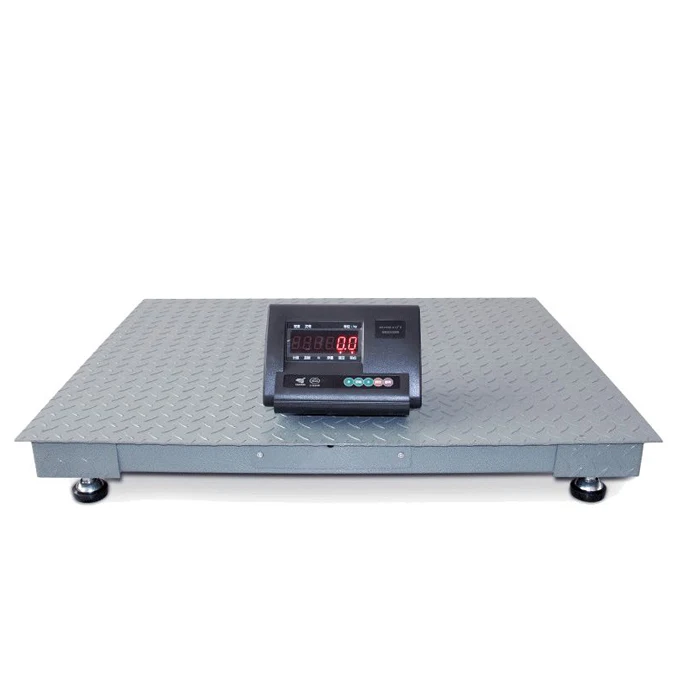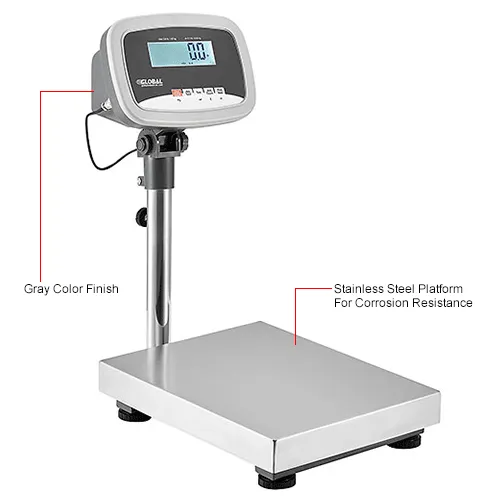Discover the Sturdiness of Costs Industrial Scales Equipment
Discover the Sturdiness of Costs Industrial Scales Equipment
Blog Article

Leading Attributes to Look for in High-Quality Industrial Scales
In the world of industrial operations, selecting the right scale is important for making certain efficiency and precision. Trick features such as precision and accuracy, along with resilience and construct top quality, play a significant duty in identifying the suitability of a range for particular applications.
Precision and Accuracy
Making sure the accuracy and precision of industrial scales is paramount for reliable operations throughout numerous industries. Precise dimensions are critical in sectors such as production, logistics, and food processing, where even small discrepancies can result in substantial economic losses, compromised item top quality, or regulatory non-compliance. High-quality industrial scales are designed to deliver trusted efficiency, using advanced technology to guarantee exact weight analyses.
The calibration process is vital in maintaining the accuracy of these ranges. Regular calibration against licensed reference weights makes certain that any type of drift in measurement is dealt with, consequently supporting compliance with sector requirements. Furthermore, the usage of high-resolution lots cells enhances the scale's capacity to spot minute weight changes, further boosting its precision.

Longevity and Build Quality
Resilience and construct top quality are important variables that identify the long life and integrity of industrial ranges in requiring atmospheres. Industrial ranges are often based on harsh conditions, including direct exposure to dust, moisture, and hefty tons. The products utilized in their building play a vital role in guaranteeing they can stand up to these obstacles.
High-quality commercial scales typically include durable real estates made from materials such as stainless steel or aluminum, which not only offer structural honesty yet also resist rust and wear. Furthermore, attention to detail in the style, such as enhanced edges and shock-absorbent feet, can boost longevity and safeguard delicate elements from damage.
Furthermore, high-grade components, consisting of lots cells and electronic parts, contribute to the general build high quality. These parts need to be designed to endure temperature variations and vibrations commonly discovered in commercial settings. Guaranteeing proper access defense (IP rating) is also important, as it shows the range's capability to hold up against dirt and fluid direct exposure.
Inevitably, choosing industrial scales with exceptional durability and build quality will lead to a much more reputable, durable solution that fulfills the strenuous needs of different commercial applications.
Load Ability and Range
When selecting industrial scales, recognizing their lots capability and range is vital for meeting details functional requirements. Tons capability describes the optimum weight that a scale can accurately measure, while the array indicates the range of weights the range can deal with efficiently. It is important to select a range that not only meets present requirements yet additionally suits possible future needs.
Different industries have distinct find this weight measurement needs. A manufacturing facility may call for scales capable of weighing heavy machinery elements, while a lab could just need scales for lighter products. Picking a range with a proper lots capability guarantees precision and accuracy, protecting against overloading that can result in tools damage or incorrect analyses.
A scale that can determine both light and heavy weights accurately can boost operational efficiency, allowing for flexible applications. Spending in scales with ideal load capacity and variety dramatically adds to productivity, conformity with sector standards, and general operational reliability.
Convenience of Use and Maintenance

In addition to user-friendliness, simplicity of upkeep is one more vital facet to think about. Ranges that are created with accessible components assist in routine maintenance tasks such as calibration, cleaning, and battery replacement. A modular layout can further enhance these processes, enabling fast repairs and minimal downtime.
Moreover, the materials used in the construction of commercial ranges play a considerable duty in upkeep. Scales made from sturdy, corrosion-resistant materials are easier to tidy and less susceptible to damages, which prolongs their life-span and decreases general functional expenses.
Regular maintenance schedules, led by the producer's recommendations, are vital for making certain ideal efficiency. By prioritizing ease of usage and upkeep, companies can guarantee that their industrial scales continue to be effective, reliable, and efficient devices in their operations. This results dig this in boosted performance and a more effective process.
Connectivity and Combination Choices
Integrating commercial scales into existing functional frameworks is greatly improved by robust connection alternatives. Top notch commercial scales must provide multiple connection approaches, consisting of USB, Ethernet, and wireless choices such as Wi-Fi or Bluetooth. These features promote seamless data transfer to central databases, ERP systems, or cloud platforms, making it possible for real-time surveillance and coverage.
Moreover, progressed combination options permit for compatibility with existing devices, such as printers or barcode scanners, boosting and streamlining procedures workflow performance. Ranges that sustain industry-standard procedures, such as Modbus or RS-232, can easily interact with various tools and systems, making sure a check it out natural functional environment.
Another necessary facet is the capability to incorporate with software application solutions that assess and imagine data - Industrial Scales. Ranges outfitted with APIs or software growth kits (SDKs) supply businesses the flexibility to personalize performances customized to their certain demands
Last but not least, considering future scalability is essential; choosing ranges that can adjust to progressing technical improvements makes sure long-term worth and decreases the requirement for expensive replacements. In summary, assessing connectivity and integration options is essential when selecting high-grade commercial scales that will improve operational performance and information monitoring.
Final Thought
In conclusion, selecting top quality commercial ranges requires cautious consideration of a number of essential features. Industrial Scales. Prioritizing these qualities eventually leads to enhanced productivity and long-lasting worth in commercial applications, strengthening the relevance of educated decision-making in range option.
In the realm of industrial procedures, picking the right range is important for guaranteeing efficiency and accuracy.Guaranteeing the accuracy and precision of commercial ranges is paramount for efficient operations across numerous fields. Load capacity refers to the maximum weight that a scale can precisely measure, while the array indicates the range of weights the range can manage properly. A production center might require ranges capable of considering heavy machinery components, while a laboratory could just require scales for lighter products. By focusing on convenience of usage and maintenance, organizations can make certain that their industrial ranges continue to be efficient, reliable, and efficient tools in their operations.
Report this page